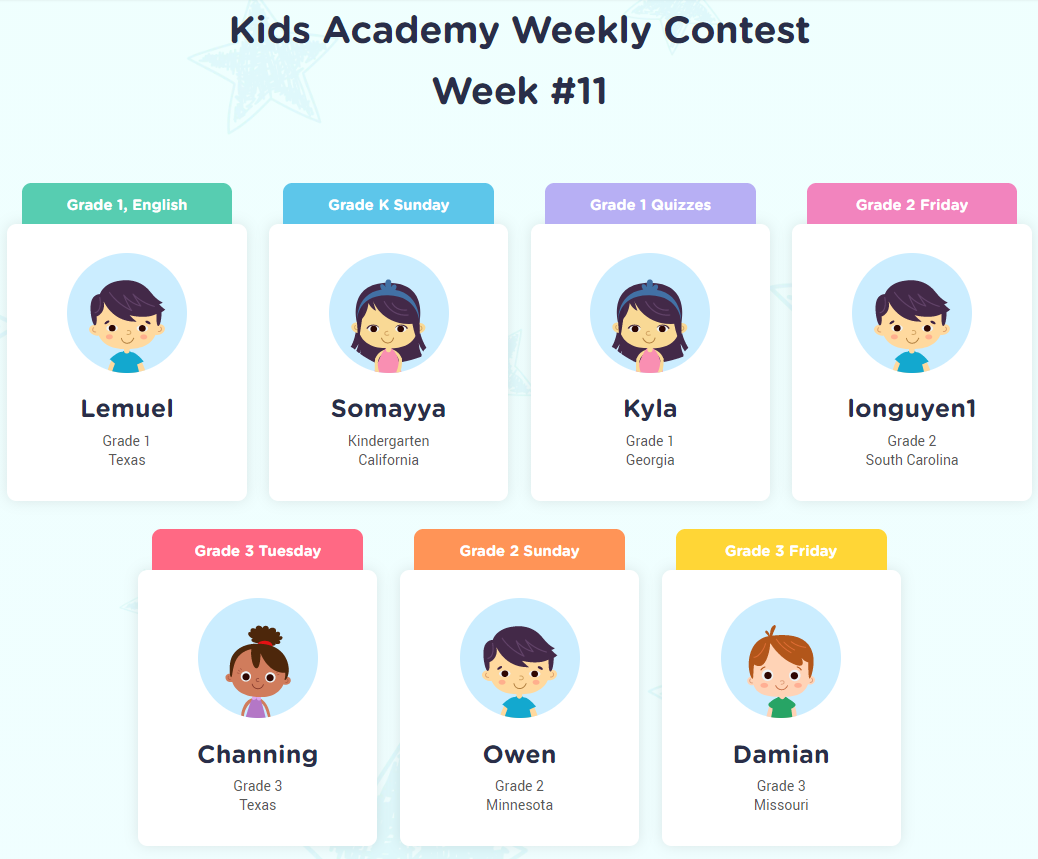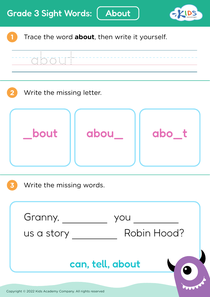Alphabet worksheets activities for Grade 3
3 filtered results
-
From - To


Phonics and Word Recognition: Assessment 3 Worksheet


Phonics and Word Recognition: Assessment 1 Worksheet


Phonics and Word Recognition: Assessment 2 Worksheet
Why Alphabet Worksheets Activities for Grade 3 Are Useful
Alphabet worksheets activities for Grade 3 are a fundamental tool in reinforcing the literacy skills of young learners. At this stage of their education, children are transitioning from the basics of recognizing and writing letters to more complex literacy skills such as reading fluently and writing cohesively. Here's why these activities are invaluable:
Reinforcement of Learning: Alphabet worksheets offer a structured way for third graders to practice and consolidate their knowledge of the alphabet. This reinforcement is crucial in ensuring that foundational skills are solidified, allowing for more advanced literacy skills to be built upon them.
Building Blocks for Reading and Writing: Proficiency in the alphabet is the cornerstone of reading and writing. By engaging in alphabet worksheets activities for Grade 3, students enhance their ability to recognize letters and understand their sounds, which is essential for word formation, reading comprehension, and effective writing.
Cognitive Development: These activities challenge students to think critically and creatively. They often include tasks that require students to engage in problem-solving, such as deciphering puzzles or completing words, which in turn, supports cognitive development and enhances memory.
Engagement and Fun: Alphabet worksheets designed for Grade 3 are created with the age and interests of these learners in mind. They often incorporate themes, characters, and games that make learning enjoyable and engaging, keeping students motivated and eager to learn more.
Customizable Learning Experience: Teachers and parents can select worksheets that cater to the individual learning pace and challenges of each student. This personalization ensures that each child is adequately supported in their literacy journey, making learning more effective and rewarding.
In conclusion, alphabet worksheets activities for Grade 3 are not just about learning letters; they are a comprehensive tool that supports overall literacy development. They provide a fun, engaging, and effective way for children to master the fundamental skills necessary for their future academic success.
 Assign to My Students
Assign to My Students



















